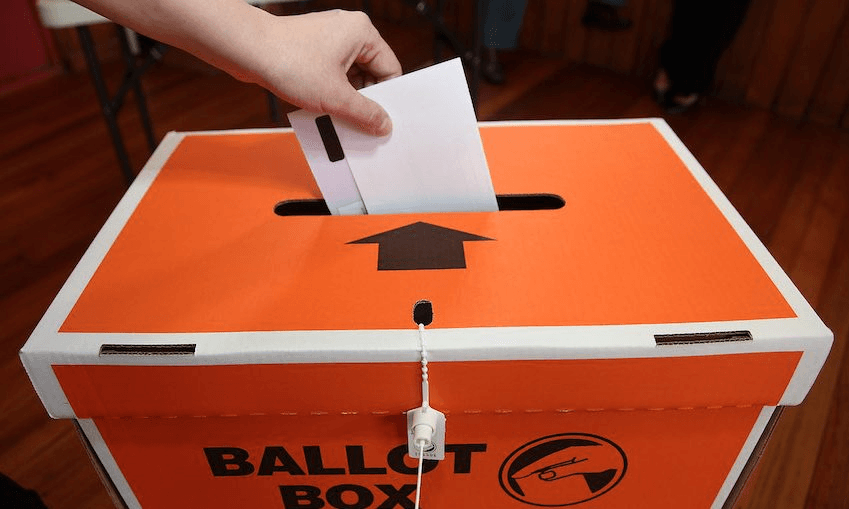A lot of us are feeling disillusioned with parliamentary politics at the moment – and in another three years, we’ll go through this whole drawn out, messy, process again. So what do we do in the meantime? Brodie Fraser has some suggestions.
The 2017 election campaign was a pretty nasty one – it felt like all that our politicians did was argue over whether or not all New Zealander’s should be afforded Human Rights (such as secure housing, to be presumed innocent until proven guilty, and to be able to vote), and whether or not people deserve social security provided to them by the government.
Politics is an all-encompassing part of life. To me, politics is not just parliamentary politics; it is a combination of our individual actions, the work of our communities, and the work of formal institutions (such as central and local government). Politics can be seen an enacted in the everyday; it does not exist purely in the formal realm.
While voting in an election every few years is a relatively simple form of participation, it should not exist as the be all and end all of political participation. Participation can include voting, activism, education, volunteering, the conversations we have with others, and so much more! Much of what we do can be considered political, even if we do not view it that way.
Voting is, of course, incredibly important. It is a right that many people across the world are not afforded; we are lucky to live in a country with a stable democracy and enfranchisement for almost all of our citizens. However, voter turnout is consistently decreasing across a number of western democracies and New Zealand is no exception. During this election cycle, we did see discussions about this – particularly the disproportionately low rates of turnout amongst younger cohorts of voters. These are worthy conversations to be having, but it’s also necessary to think about other questions: how we might transform our democracy to make it more appealing for everyone to participate in, the other ways in which people participate in politics, and whether or not we can further entrench and privilege these alternative forms of participation.
Political scientist David van Reybrouck has written a great book about how voting is not necessarily the best form of political participation for modern democracies. Voting is not something we do all that frequently, and finding the information to make an informed vote can be overwhelming. The act of voting in an election does not often lead to sustained, long-term participation once an election is over. Alongside this, elections are adversarial, which can be off-putting for a number of people. Politics is so much more than old white guys arguing with each other, but parliamentary politics would have you think otherwise. Politics can be enjoyable and meaningful! Currently, though, our norms of participation don’t reflect this.
We need to have discussions about how we want our democracy to work, and what forms of participation work best for our diverse little country. To me, this conversation should start with talking about and engaging in forms of other forms of political participation beyond voting. So, what else is there to do aside from voting?
For those interested in parliamentary politics, you can join a political party, volunteer for a party or a particular MP. If it’s a particular cause you care about, you can start a petition – though you will eventually need to find a supportive MP who can accept the petition. You can also keep an eye out on what Select Committees are taking public submissions; this can be done online, in person, or by written letter. And you can, of course, contact an MP. On a more local level, you can also get involved in local government and find opportunities to engage with your local council.
On the individual action side of things, the first thing to do is to make sure you’ve joined your relevant union! Unions do really great things for individual workers and the workforce as a whole. Also – studies have found that unionised workers are more likely to earn higher wages over their lifetime than non-unionised workers. You can also educate yourself and be inspired by all the activists whose shoulder we stand on; there’s lots of digestible and accessible information online. On the long-term side of things, you can form habits that align with your values. This might be by consciously being more compassionate towards others, reducing the amount of plastic waste you produce, relying less on fossil fuels, ditching fast fashion to buy ethically or second-hand, reducing the amount of meat you eat, and so on. Finally, if you have the resources, you can donate money or resources to a charity you support.
If you want to get involved in community lead change, there’s even more you can do! You can join your local community garden (or start your own – it can even be a windowsill herb garden). If you have the time, volunteering for a charity you support or joining an activist group is both rewarding, and a good way to meet people you might not otherwise befriend. It’s pretty easy to find charities and activist organisations relating to just about anything, and social media is making it even easier to reach people. If you can’t find an organisation that suits the type of change you want to create, there’s also a wealth of material online about how to establish your own organisation.
Creating effective political change requires us to have a wide range of tools at our disposal – we must remember not to rely entirely on one method.
Brodie Fraser is a PhD candidate at the University of Otago, Wellington. She holds a Master of Political Science (with a focus on participation) from Victoria University of Wellington, and was co-awarded the Speaker’s Prize for 2016.

